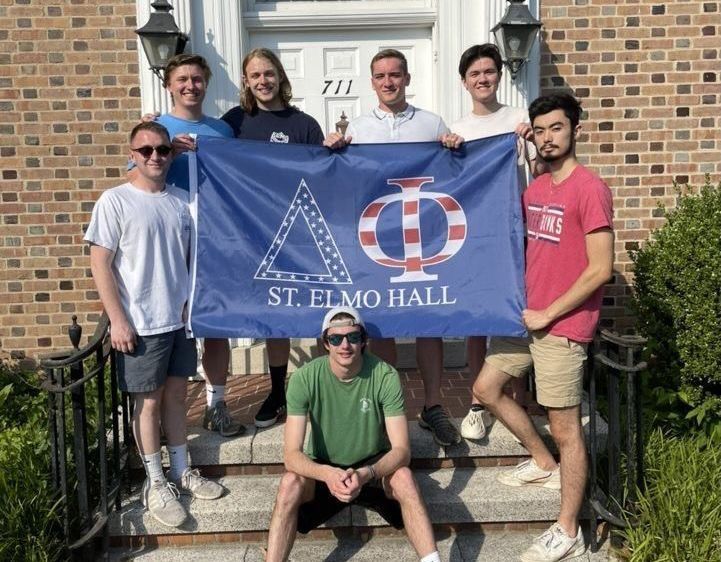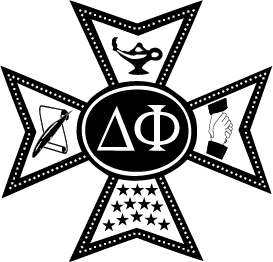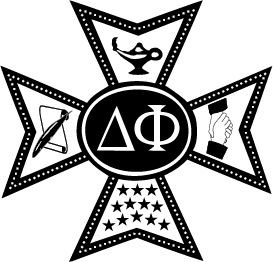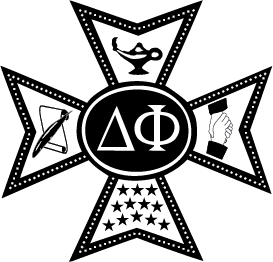A Brief History of Delta Phi
On a crisp November evening in 1827, nine young men, all upperclassmen at Union College, huddled closely against the evening chill underneath the Burr Bridge that spanned the rambling Mohawk River connecting the towns of Schenectady and Scotia, New York. In hushed and secretive tones, the men spoke of forming a new organization at the college. The group they envisioned would last not only for their college years but also beyond them – it would create ties that would bind them for life. The results of this meeting were soon apparent. On November 17, 1827, the men reconvened in North College Hall on the Union campus and the results of that meeting have endured for nearly 200 years.
On that night, they founded the Delta Phi Fraternity as the final of the three fraternities founded at Union College known as the “Union Triad” and recognized throughout the fraternity movement as the progenitors of the “Greek systems” seen on campuses nationwide. But what motivated these men to bond together? The founders had no interest in just another club or becoming a group of people with whom to eat or live. They dreamed of building something deeper than that: something that would make them and their successors better men, more loyal to each other, to their alma mater and, in time, better husbands, fathers, and citizens. They believed that they could and should set a higher standard for themselves and those around them. They viewed a social fraternity as being about society – its literal definition – a group of humans broadly distinguished from other groups by mutual interests, participation in characteristic relationships, shared institutions, and a common culture. Today, we still hold to the founders’ vision of a social fraternity.
The distinguishing characteristics of their new society were to be morality, the mind, and the cultivation of friendship. Our Fraternity, then, modeled itself on the same values as Phi Beta Kappa: Friendship, Morality, and Literature. Today we take scholarship to be the modern equivalent of “the mind” or “literature.” As a triumvirate, they are known as the “Three Pillars” of Delta Phi or, visually, as the three sides of the Delta.
Brotherhood
Our overarching objective for every chapter is to foster a nurturing and supportive community that wholeheartedly embraces the inherent value of a diverse membership. We place great emphasis on the significance of mutual respect and hold dear the virtue of forging lifelong bonds of brotherhood. Our steadfast belief lies in welcoming individuals who are dedicated to cultivating enduring friendships founded on principles, upheld with unwavering integrity, and celebrated across generations.
Literature
Within Delta Phi, our commitment to intellectual vigor and personal leadership stands as a cornerstone of our values. As a brotherhood, we actively seek individuals of exceptional talent who will not only contribute to but also thrive within our organization. Our unwavering dedication extends to fostering an environment that encourages and empowers the diverse talents of each member, both during their undergraduate years and throughout the entirety of their lives and careers.
Morality
At the core of our brotherhood, we recognize that character serves as the bedrock for establishing and nurturing enduring bonds. Within our fraternity, we not only celebrate each other's triumphs but also stand united in providing unwavering support during times of adversity. The significance of character and morality resonates profoundly, serving as the keystones of leadership in our personal lives, within the brotherhood, and in our broader community. Our collective aspiration is to cultivate chapters and members renowned for their unwavering integrity, exceptional abilities, and steadfast trustworthiness.
United in our purpose, the brotherhood of Delta Phi is dedicated to fortifying, uplifting, and celebrating each of our members. Aligned with our time-honored traditions, overarching philosophy, and steadfast no-hazing policy, our commitment is unwavering in cultivating a positive and inclusive environment for all. We staunchly reject the intentional harm of any member, actively working to create an atmosphere that neither encourages nor condones any form of substance abuse. Our pledge is to foster a fraternity where every member thrives in an atmosphere of support and respect.
A National Fraternity
Delta Phi became a National Fraternity with the establishment of the Beta chapter at Brown University in 1838. There are over 14,000 alumni living in all 50 states along with Washington, D.C., Puerto Rico, and 37 foreign countries. Having established chapters at 25 elite institutions, Delta Phi has an unparalleled heritage, an impressive legacy, and great prospects for the future.
The fraternity deliberately maintains a sense of exclusivity, remaining intentionally small in the number of chapters and total membership. This intentional choice makes the bonds among members even more special. Crossing paths with a fellow Delta Phi member is a powerful connection that transcends the experiences of larger fraternities.
The Union Triad
Delta Phi, along with Kappa Alpha Society and Sigma Phi Society, forms the prestigious Union Triad – the pioneers of social college fraternities in North America. From the halls of Union College, regarded as the "Mother of Fraternities," emanates the extensive Greek system and communities seen on college campuses today.
How A Delta Phi Saved the Greek System
As we sometimes see now, anti-fraternity sentiment was rampant in the college administration. Adding to the challenges facing the nascent fraternities was the authority of the man seeking their destruction, Dr. Eliphalet Nott, President Union College and the most esteemed educator of his day.
In 1833, Dr. Nott banned fraternity membership at Union. Under extreme duress, both Kappa Alpha and Sigma Phi removed their badges and attempted underground existences. However, the brothers of Delta Phi held firm and refused to disband and continued to operate the fraternity. Delta Phi took up the defense of the fraternity movement and Brother John Jay Hyde, Alpha chapter 1832 (Union 1834) so convincingly argued the case of the fraternities before the faculty that Dr. Nott rescinded his proscription of fraternities, allowing them to grow, flourish, and expand to other campuses. In turn, Nott's own son would later join Delta Phi during his college days.
St. Elmo, Patron Saint of Delta Phi
Adding an intriguing layer to the Delta Phi narrative is the name St. Elmo, adopted by some chapters for over 125 years. The practice started at Omicron (Yale) where the chapter sought a distinctive name for their home. Hearkening back to the Knights of Malta, who were mariners, the men of Omicron appropriated the name of St. Elmo, the patron saint of mariners. The practice caught on and at many campuses the names Delta Phi and St. Elmo have become synonymous, adding yet another layer of tradition to this unique story.
Delta Phi has remained an exclusive fraternity. Rather than engaging in the wholesale expansion policies that have marked the operation of other Greek letter fraternities, the brothers of Delta Phi choose to establish chapters only at the finest schools and usually with proximity to other chapters. It grants its chapters a substantial degree of local autonomy - allowing them to develop their own traditions and policies within the scope of a larger institution.



